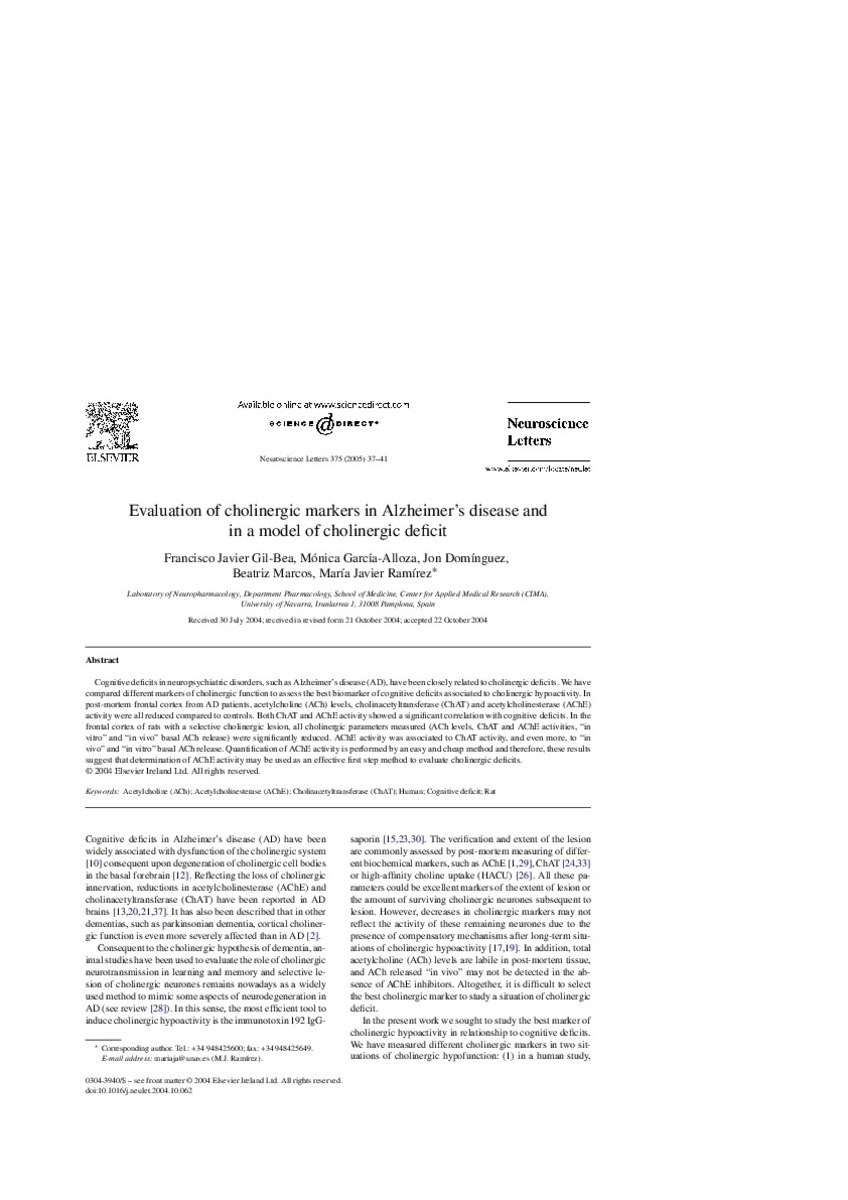Evaluation of cholinergic markers in Alzheimer's disease and in a model of cholinergic deficit
Palabras clave :
Acetylcholine (ACh)
Acetylcholinesterase (AChE)
Cholinacetyltransferase (ChAT)
Human
Cognitive deficit
Rat
Fecha de publicación :
2005
Cita:
Gil-Bea FJ, Garcia-Alloza M, Dominguez J, Marcos B, Ramirez MJ. Evaluation of cholinergic markers in Alzheimer's disease and in a model of cholinergic deficit. Neurosci Lett 2005 Feb 25;375(1):37-41.
Aparece en las colecciones:
Estadísticas e impacto
0 citas en

0 citas en

Los ítems de Dadun están protegidos por copyright, con todos los derechos reservados, a menos que se indique lo contrario.







